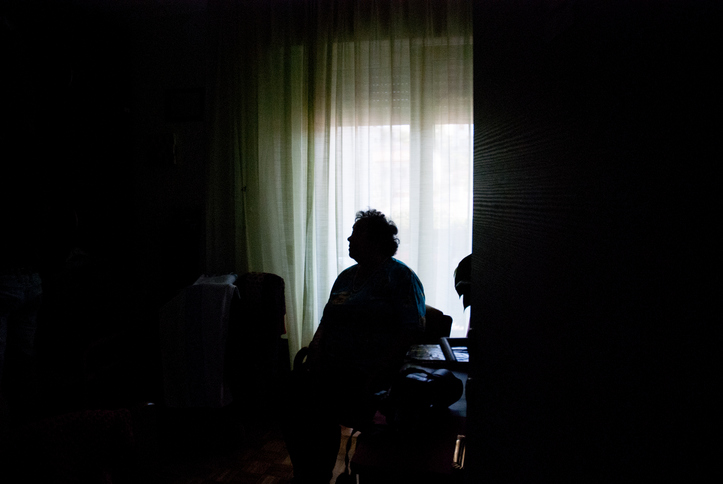
The high rate of nursing home resident deaths and infections related to COVID-19 has led government officials, health advocates, and university researchers to take a closer look at the quality of care.
What many of them found is a vital medical institution in crisis.
Nearly every nursing home in the U.S. is understaffed, according to a recent survey by the American Health Care Association and National Center for Assisted Living.
This lack of workers is creating opportunities for inadequate patient care, as well as nursing home abuse and neglect.
If you have a loved one in a nursing home, there's a good chance you are already aware of this reality.
Things are getting worse
COVID-19 shined a spotlight on the dismal state of the American nursing home and long-term recovery system. It also exacerbated the problem.
In 2019, before the pandemic, 75% of nursing homes didn't have enough staff to properly serve patients.
Now, 94% of the nation's nursing home providers say they are grappling with staff shortages.
The staffing shortage, experts say, is due to the poor working conditions, health risks, and low wages employees must accept to work at a nursing home. In May, for example, the median annual wage for a Georgia nursing home nursing assistant was slightly under $31,000. That's about $14.88 per hour. Meanwhile, fast-food workers are winning the battle for a fair $15-an-hour wage.
There's also a retention problem. Even when facilities are able to hire staff, working conditions will often drive them away. Before the pandemic, in 2018, nursing homes had an average turnover rate of 140%. The pandemic has sent the turnover rate soaring, with some nursing homes reporting 300% employee turnover.
With nearly every nursing home in America understaffed, the problem is gaining public attention. Nursing staff members are calling for change.
Providers say change won't come if the government doesn't increase Medicaid and Medicare reimbursements.
Nurses say they need higher wages, safer working environments, and reasonable minimum staff-to-patient ratio standards.
'Missed care' epidemic
Staff shortages often lead to "missed care" — otherwise known as an error of omission. Missed care happens when a patient's treatment is delayed, partially completed, or not completed at all.
Factors contributing to missed care include staff shortages, as well as:
- Lack of staff education and experience
- Shortages of materials like medications, supplies, and equipment
- Inadequate teamwork and communication among patient care team members, nurses, physicians, and support staff
In an international survey, researchers learned that 55% to 98% of nurses had "missed care" or left work undone on their last shift. The treatments most frequently skipped included:
- Ambulation
- Turning
- Mouth care
- General surveillance
- Addressing the emotional and psychological needs of residents
Financial help for Georgia
Georgia's nursing homes have recently received significant cash infusions to help them address COVID-19.
In May, the state released $128 million in federal dollars to more than 500 nursing homes. Each home received about $50,000, plus $2,500 per patient bed. A typical 300-bed facility would get about $300,000, according to local media reports. Georgia also provided about 350 nursing homes with coronavirus-fighting equipment like industrial foggers, disinfectant solutions, and personal protective equipment (PPE).
Not all assisted living communities will receive funds, however. Private-pay facilities are not eligible for the program.
How to identify nursing home neglect and abuse
Inadequate medical care and neglect are just a few of the types of abuse for which nursing home residents are at risk. Other forms include emotional, physical, sexual, and financial abuse.
It's not always easy to spot when a loved one is being mistreated. In some cases, the victim may not be aware of the harm or is too afraid to speak up. Do you suspect someone you love is being mistreated, neglected, or abused at a Georgia nursing home? Is your loved one showing any of the following signs of abuse?
- Bedsores, aka pressure ulcers
- Bruises
- Burns
- Dehydration
- Sleep disorder
- Unexplained weight loss
- Poor hygiene
- Head injuries
- Falls
- Broken and fractured bones
- Increased levels of anxiety or depression
- New or worsening infections
- Dirty clothing
- An odor of bodily fluids
- Unexplained STD
- New bank accounts or credit cards
If any of these signs look or sound familiar, contact The Law Office of George S. Johnson, LLC, for a free case consultation. A member of our legal team will listen to your concerns and what you have observed regarding your loved one's treatment. We will help you understand how the law applies to your specific situation and go over your legal options.
A former U.S. Army Reservist and dedicated nursing home abuse lawyer, attorney George S. Johnson takes protecting Georgia's elderly, sick, and injured seriously. He is ready to fight for your rights.
Call or email us today to learn how we can help you.
